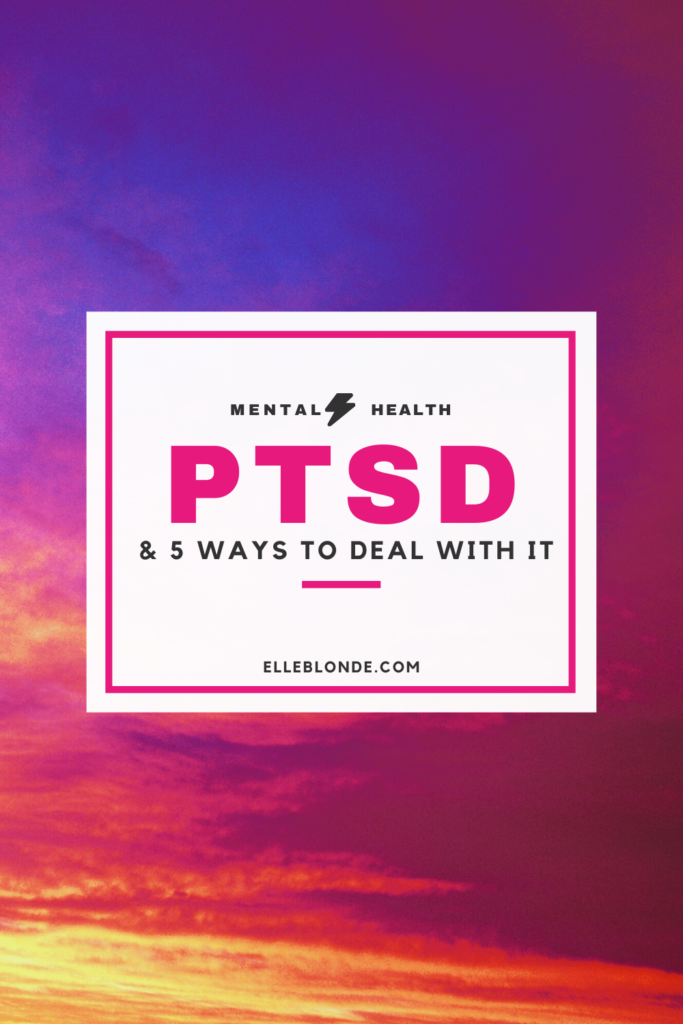Approximately 70 percent of adults in the United States have experienced a traumatic event in their lives. Among these people, around 20 percent may develop posttraumatic stress disorder (PTSD). If your loved one has PTSD, they may be constantly filled with feelings of intense fear and helplessness.
Without proper treatment, PTSD can last for many years and result in chronic psychological repercussions. To help your loved ones manage their PTSD symptoms and move past their trauma, here are ways to show you care for them.

5 Ways How to Deal with PTSD
Learn More about PTSD
Treatment of posttraumatic stress disorder is not simple. It often requires a person to undergo pharmacological and nonpharmacological treatments for a long time. If you want to help your loved ones cope with PTSD, spend time educating yourself about this mental health condition.
In fact PTSD is now recognised as a non-visible disability and some of those affected by the condition are entitled to a disability allowance. You can use the disability calculator to see if your family member is entitled here.
There are several dos and don’ts when it comes to communicating with people who are suffering from PTSD. To avoid accidentally triggering your loved ones, learn more about this disorder—its signs, symptoms, types, effects, and treatment options. You’ll be able to understand them better and offer more support when you’re better equipped.
You can discover more about VA disability rating for PTSD and how this affects any benefits paid for US servicemen and women here.
Don’t Push Loved Ones Into Talking
People with PTSD may find it difficult to open up and talk about their traumatic experiences. If they’re forced to share their problems, their symptoms can worsen, and they may relive their trauma. Instead of pressuring your loved ones into talking, wait for them to feel comfortable enough to share what they have gone through.

Related Read;
Be a Good Listener
When your loved ones are finally willing to share their struggles and traumatic experiences, you should listen attentively. Show that you care for them and that you’re interested in what they’re talking about. When they talk about it repeatedly, be empathetic, respectful, and patient.
As much as possible, refrain from giving advice when loved ones do not request it. You may end up saying words that can keep them from opening up to you again. In case they ask for your thoughts and opinion on the matter, avoid remarks that may come off as insensitive.
Encourage Loved Ones to Exercise
Participating in fun physical activities can improve one’s mood. Thus, it will temporarily distract PTSD patients from their own thoughts, which will help better manage their strong and uncomfortable emotions. To get your loved ones moving, you can encourage them to do the following:
- Attend a fitness class together.
- Participate in rhythmic exercise.
- Try a new sport.
- Pursue outdoor activities like hiking and rock climbing.
- Dance with family or friends.

Help Manage Triggers
A trigger is anything that reminds an individual of their traumatic experience. It can be something that appears very ordinary to you, but for them, it’ll set off a PTSD symptom already. Some of the common triggers are these:
- People, places, or items that’ll remind them of their trauma
- Sights, sounds, or smells associated with their trauma
- Specific time of day that the trauma happened
- Funerals and hospitals
Triggers will vary from one person to another. They are unique and specific to their traumatic experiences, so you won’t know what triggers our loved ones unless they tell you. To help them avoid their specific triggers, you can talk to them to find out what sets off their PTSD symptoms.
Keep a CPAP Machine as Needed
Many people who are suffering from PTSD have a high risk of developing obstructive sleep apnea (OSA). When left untreated, this potentially serious sleep disorder can lead to various diseases, including heart and liver problems. That is why getting screened for sleep apnea is highly encouraged for people who are being treated for PTSD.
If your loved ones are diagnosed with obstructive sleep apnea, they’ll most likely undergo continuous positive airway pressure (CPAP) therapy. This treatment is one of the leading remedies for the OSA, and it’s good for people with PTSD. With proper CPAP therapy, your loved ones may improve their sleep, reduce their PTSD-related nightmares, and mitigate some symptoms of PTSD.
For CPAP therapy to work, it’s vital to purchase the right CPAP mask that fits them perfectly. An incorrect size and style will only make them feel uncomfortable and further prevent them from getting a good rest.
Dealing with or having a loved one with PTSD comes with different demands, they face depression and anxiety too and many doctors advise different products such as weed and CBD as a treatment to their condition and these products are available on Bud Mail at the best rate and excellent variety for your comfort but don’t take anything unless recommended by the doctor. Every day poses a different challenge that may require a different approach. Be educated, have patience, and utilize technology as much as you can.

